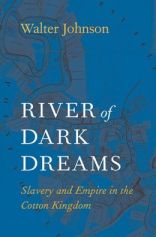 I bet few graduate students these days haven’t read, or at least seen referenced, Walter Johnson’s essay “On Agency.” Published a decade ago, the essay was prompted by what had become hackneyed trope in slavery scholarship. Everyone seemed to ascribe slaves a role in shaping their lives—“agency”—despite the power asymmetries inherent in the slave-master relationship. Johnson famously called for an end to this kind of writing. But one of his subtler points may have been lost amid his overarching argument. It wasn’t that slave agency was unimportant, but that it had lost its contemporary relevance. Finding agency mattered in the Civil Rights Era, the years in which the scholarship flourished, because it bolstered African Americans’ claims on the nation’s past, and thus its future. Continue reading
I bet few graduate students these days haven’t read, or at least seen referenced, Walter Johnson’s essay “On Agency.” Published a decade ago, the essay was prompted by what had become hackneyed trope in slavery scholarship. Everyone seemed to ascribe slaves a role in shaping their lives—“agency”—despite the power asymmetries inherent in the slave-master relationship. Johnson famously called for an end to this kind of writing. But one of his subtler points may have been lost amid his overarching argument. It wasn’t that slave agency was unimportant, but that it had lost its contemporary relevance. Finding agency mattered in the Civil Rights Era, the years in which the scholarship flourished, because it bolstered African Americans’ claims on the nation’s past, and thus its future. Continue reading
Category Archives: River of Dark Dreams
At River’s End

Last week, the Mississippi River surged against the levees, finally shattering restraints near St. Louis. Up and down the waterway, authorities hurried to secure hometowns, farmlands, and highways against the potential breach. “It could be anytime,” the Rivers Pointe fire chief told The St. Louis Post-Dispatch. “The hope is to keep Highway 94 open.” Even now, watching the water flow higher and faster still, it is worth thinking about how or why Americans have chosen to embrace life along the river: the shifting networks of politics and profit, the deep imprint of slavery on the region’s past, and the legacy of a South that may or may not have grown closer to the world, in the many ways that the Confederates or others have intended over time. This conscious construction of a river culture—as it was made and understood by the region’s black and white nineteenth-century predecessors, men and women who were also sensitive to sudden danger, but eager to maintain the dense traffic of the cotton trade—permeates Walter Johnson’s River of Dark Dreams and guides his expert analysis through their winding stories. Continue reading
A View from Beyond the Valley
 Ben, Mandy, Matt, and Roy have done a marvelous job so far this week summarizing the arguments, the strengths, and a few of the (few) weaknesses of River of Dark Dreams. I therefore want to confine myself to just a few general thoughts, and then focus in on the area where my expertise lies: what this book means for the non-expert in slavery studies. Continue reading
Ben, Mandy, Matt, and Roy have done a marvelous job so far this week summarizing the arguments, the strengths, and a few of the (few) weaknesses of River of Dark Dreams. I therefore want to confine myself to just a few general thoughts, and then focus in on the area where my expertise lies: what this book means for the non-expert in slavery studies. Continue reading
Intersections upon a Dark River

Walter Johnson’s River of Dark Dreams is the best big book on slavery I have ever encountered. This is not faint praise; there is some about the subject that causes its best historians—Eugene Genovese, Winthrop Jordan, Kenneth Stampp and more—to write in at bullet-stopping length. Johnson’s volume stands out due to his ability to seamlessly place the history of antebellum slavery at the intersection of three of the nineteenth century’s key themes—imperialism, capitalism, and technological development. He does this, as other contributors to this roundtable have noted, at the sweeping level of the very geography of Mississippi River Valley and at the much more intimate level of the lived experience of enslaved laborers. Continue reading
To See The World In A Bale of Cotton
 The promise of a tie between the local and the global—a thread to join the dense fiber of individual life to the vast patterns of human interaction—has long lingered at the edge of the historian’s vision. “The hours should be instructed by the ages, and the ages explained by the hours,” wrote Emerson in “History.” “Each new fact in . . . private experience flashes a light on what great bodies of men have done.” Even the less Transcendental among us are lured by a link between the intimate and the infinite: every globalist, no matter how ambitious, must find their ground-level characters and illustrative anecdotes; the best microhistorians train their lenses to reveal not just cell particles but a whole cosmos. Few recent works in early American history, however, are so explicit in their equal pursuit of the local and the global, the hours and the ages, as Walter Johnson’s River of Dark Dreams (Cambridge: Belknap Press of Harvard University Press, 2013). Continue reading
The promise of a tie between the local and the global—a thread to join the dense fiber of individual life to the vast patterns of human interaction—has long lingered at the edge of the historian’s vision. “The hours should be instructed by the ages, and the ages explained by the hours,” wrote Emerson in “History.” “Each new fact in . . . private experience flashes a light on what great bodies of men have done.” Even the less Transcendental among us are lured by a link between the intimate and the infinite: every globalist, no matter how ambitious, must find their ground-level characters and illustrative anecdotes; the best microhistorians train their lenses to reveal not just cell particles but a whole cosmos. Few recent works in early American history, however, are so explicit in their equal pursuit of the local and the global, the hours and the ages, as Walter Johnson’s River of Dark Dreams (Cambridge: Belknap Press of Harvard University Press, 2013). Continue reading
Walter Johnson’s “River of Dark Dreams”

Walter Johnson’s River of Dark Dreams is a meditation on the making of the Cotton Kingdom in the nineteenth century American South. The book is rich with the intimacies and delicacies of detail—details that describe the fundamental material circumstances in which enslaved men, women, and children forcibly transformed Native America into cultivated grids of mono-crop culture at the behest of “Manifest Destiny”; details that are gut-wrenching in their vivid depictions of the social relations of white supremacy—the torture, the hunger, the bleeding, and the raping of the enslaved—the malignant, violent underbelly that made and forcibly maintained the Cotton Kingdom; details that connect the smallest common denominators of plantation life, whether measured in lashes (upon flesh), or pounds (of cotton), or any other metric of rule—to the global economy, which itself connected slaveholders and merchant capitalists from the fields and riverbanks of New Orleans to the factories of Manchester and Liverpool. Continue reading
Roundtable Review: Walter Johnson, River of Dark Dreams (Introduction)
 This week at The Junto, we are pleased to offer a roundtable review on Walter Johnson’s recent River of Dark Dreams: Slavery and Empire in the Cotton Kingdom (Cambridge: Belknap Press of Harvard University Press, 2013). Johnson, whose Soul by Soul: Life Inside the Antebellum Trade Market (Cambridge: Harvard University Press, 1999) went far in this year’s Junto March Madness, is the Winthrop Professor of History and Professor of African and African American Studies at Harvard University. River of Dark Dreams is a dense, learned, and sophisticated account of cotton culture, slave society, and global capitalism as experienced in pre-Civil War Mississippi Valley. It has somthing for everyone: race, slavery, capitalism, technology, regionalism, and globalism. As such, this week’s roundtable will offer five reviews from five different authors giving their take on what promises to be a classic text. After my brief overview and introduction, we will post one review each day from Mandy Izadi (today), Matt Karp (Tuesday), Joe Adelman (Wednesday), Roy Rogers (Thursday), Sara Georgini (Friday), and Eric Herschthal (Saturday). We hope that these various reviews will spark discussion and debate. Continue reading
This week at The Junto, we are pleased to offer a roundtable review on Walter Johnson’s recent River of Dark Dreams: Slavery and Empire in the Cotton Kingdom (Cambridge: Belknap Press of Harvard University Press, 2013). Johnson, whose Soul by Soul: Life Inside the Antebellum Trade Market (Cambridge: Harvard University Press, 1999) went far in this year’s Junto March Madness, is the Winthrop Professor of History and Professor of African and African American Studies at Harvard University. River of Dark Dreams is a dense, learned, and sophisticated account of cotton culture, slave society, and global capitalism as experienced in pre-Civil War Mississippi Valley. It has somthing for everyone: race, slavery, capitalism, technology, regionalism, and globalism. As such, this week’s roundtable will offer five reviews from five different authors giving their take on what promises to be a classic text. After my brief overview and introduction, we will post one review each day from Mandy Izadi (today), Matt Karp (Tuesday), Joe Adelman (Wednesday), Roy Rogers (Thursday), Sara Georgini (Friday), and Eric Herschthal (Saturday). We hope that these various reviews will spark discussion and debate. Continue reading